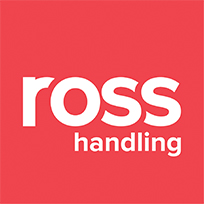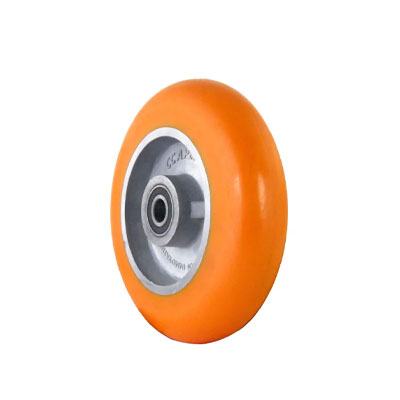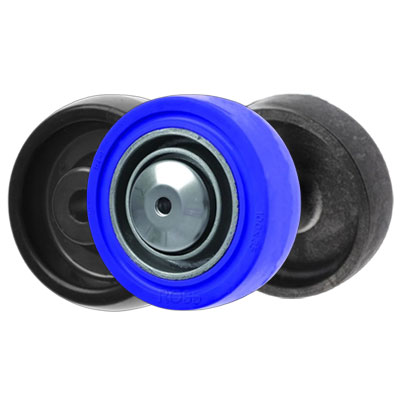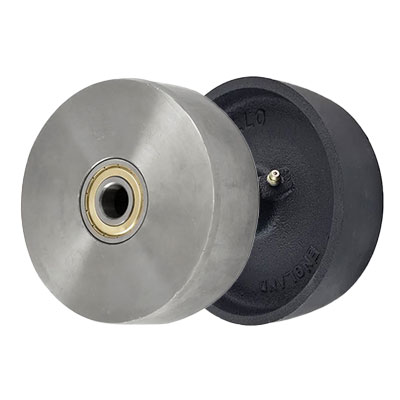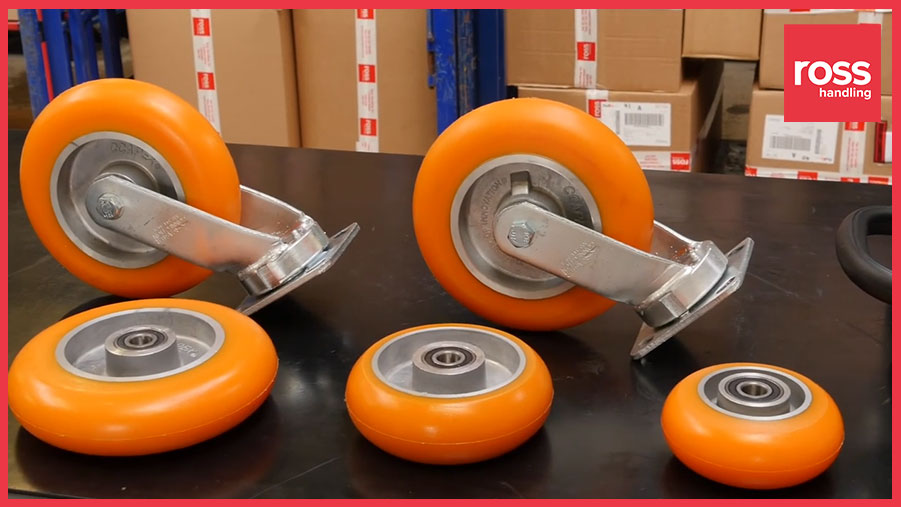What are Castor Wheels Made of?

-
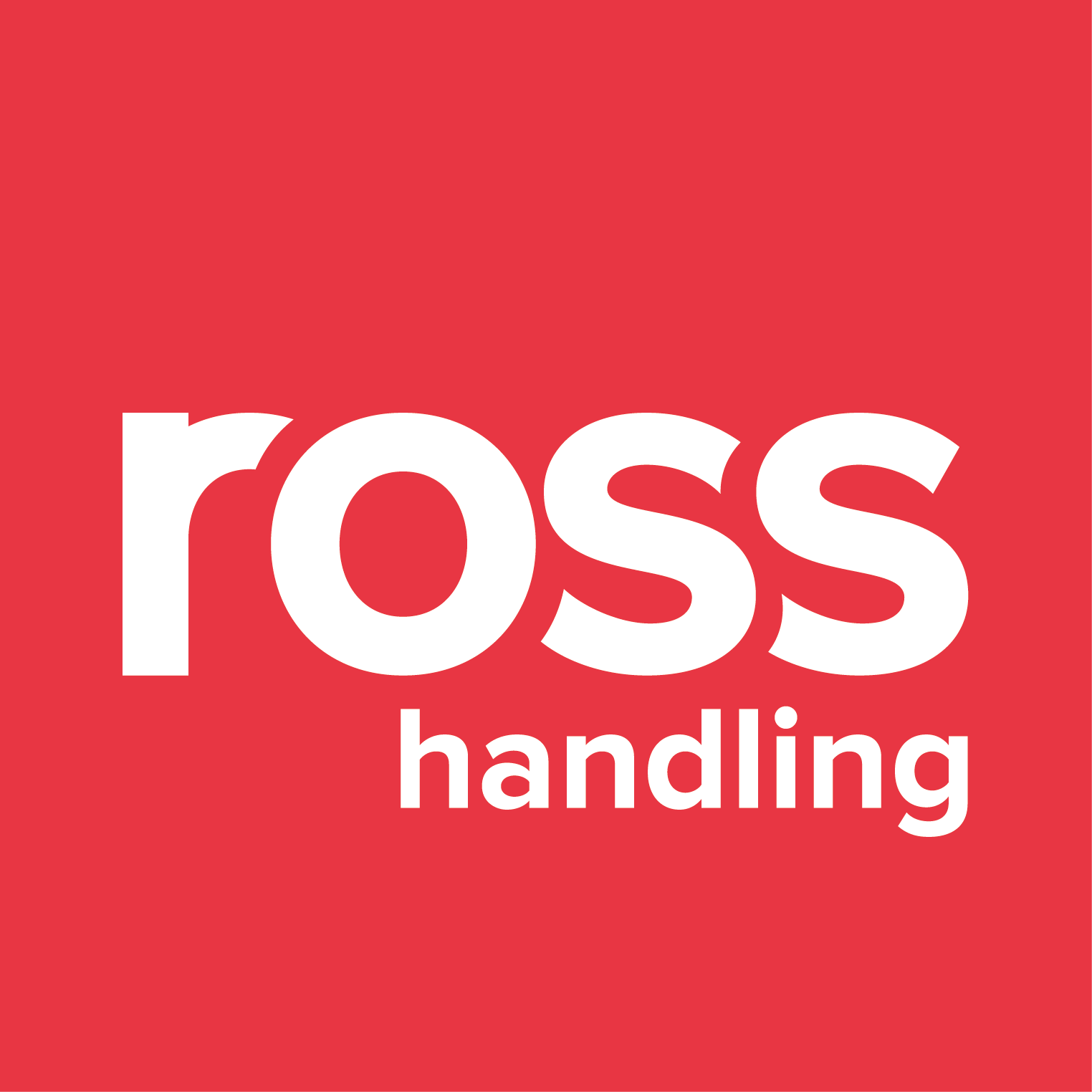
- Ross Castors Blog
- 19 Aug 2025
-
209views
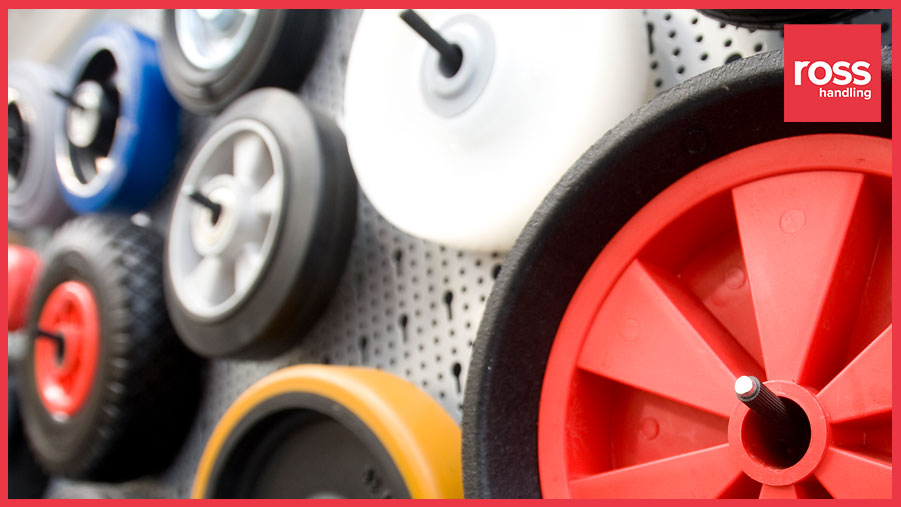
When it comes to moving heavy loads with ease, castor wheels keep countless industries moving. From hospital beds to warehouse trolleys, they’re everywhere but have you ever wondered what they’re actually made of? Or the benefits that different materials can provide to your business?
The answer isn’t as simple as “rubber and metal.” Castor wheels come in a variety of materials, each chosen to suit different applications, weight capacities, and floor types.
Let’s break it down.
Common Materials for Castor Wheels
Choosing the right castor wheel material is essential for ensuring reliability, safety, and cost-effectiveness in any business environment. Whether you’re supplying shops, warehouses, healthcare facilities, or industrial sites, understanding the main materials will help you select the best solution for your customers.
Some of the most common materials include:
- Nylon: Lightweight, durable, and highly resistant to wear. Ideal for smooth surfaces and easy manoeuvrability.
- Polyurethane: Widely used across everyday and heavy-duty applications. Offers exceptional load capacity, excellent floor protection, smooth, quiet operation, and strong resistance to wear and chemicals.
- Polypropylene: Cost-effective and resistant to many chemicals and moisture. Well-suited for light to medium-duty applications.
- Rubber: Great for noise reduction and shock absorption. Excellent for environments where floor protection and quiet operation are important, such as hospitals and hotels.
For more demanding environments, see our specialist high-performance materials below.
High-Performance Castor Wheel Materials and Their Industry Applications
While standard castor wheel materials meet most everyday requirements, some industries demand specialist solutions. High-performance materials are engineered to deliver exceptional durability, safety, and resistance in the harshest conditions.
Common high-performance castor wheel materials include:
Ergonomic Polyurethane Wheels – Designed for reduced strain
Benefits: High-rebound polyurethane tread reduces push/pull strain by up to 40%, provides smooth and quiet rolling, resists wear and chemicals, and protects floors.
Used for/in: Manufacturing and logistics lines, healthcare environments and industrial settings where frequent load movement is required.
Temperature Resistant Wheels
Thermoplastic: Excellent shock resistance and minimal rolling resistance, works from –40°C to +270°C.
Phenolic Resin: For dry and wet environments, resists oils, chemicals, and high heat up to 200°C.
Rubber: Combines resilience and floor protection with a working range from –30°C up to +300°C.
Used for/in: Bakeries, food production, catering, chemical plants, laboratories, and cold storage.
Cast Iron & Steel Wheels
Benefits: Steel offers a smoother ride, resists impact and wear, and is ideal where equipment may face shock or vibration. Cast Iron is incredibly tough, handles the heaviest loads, and withstands extreme heat and rough, abrasive floors.
Used for/in: Warehouses and manufacturing plants, foundries and steelworks.
Choosing the Right Castor Wheel Material
To choose the best castor wheels, always match the material to weight capacity, floor type and environmental factors. The wrong material can lead to reduced productivity, shorter lifespan of your castor wheels and therefore extra costs, and importantly, unplanned downtime.
Need help choosing the right castor wheels? Our experts are ready to help you find the perfect solution for your business.
Get in touch to today on 0116 276 4987.

 (EUR)
(EUR)

